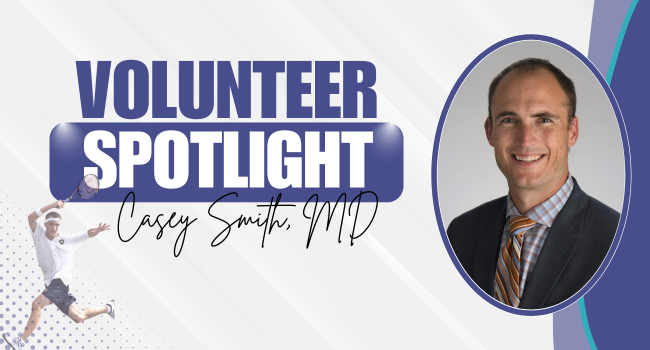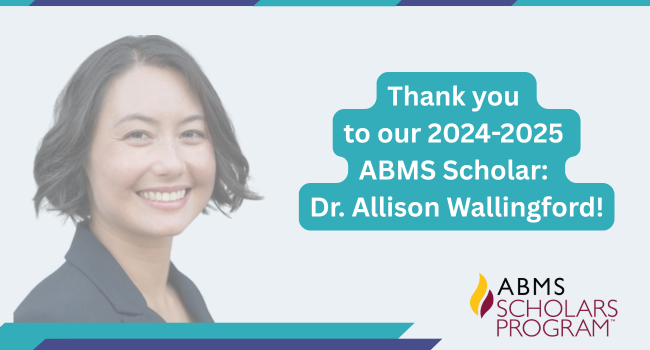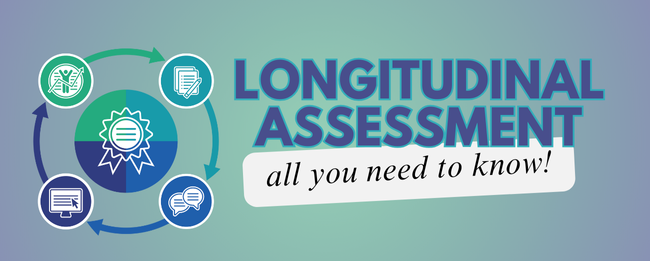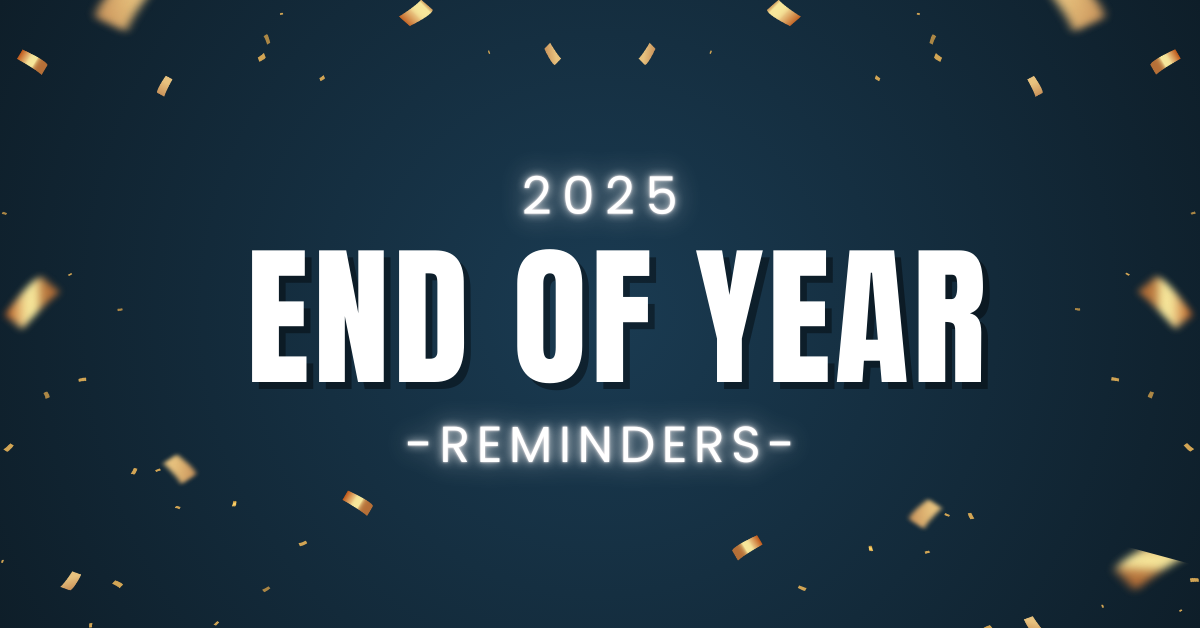Physician Features
Volunteer Spotlight: Felicia Skelton, MD, MS
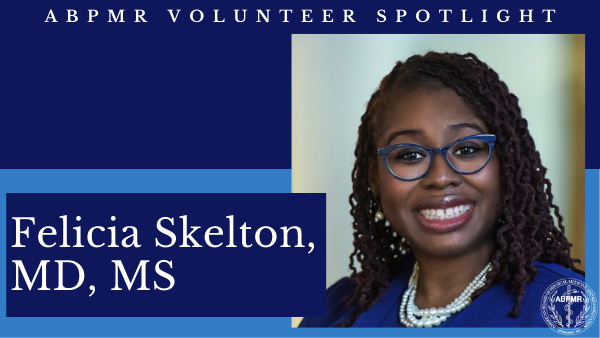
This month, we are excited to feature a first-time ABPMR volunteer: Felicia Skelton, MD, MS.
Dr. Skelton is an investigator and staff physician in the spinal cord injury care line at the Michael E. DeBakey VA Medical Center in Houston. At Baylor College of Medicine, she holds an academic appointment of assistant professor in the department of PM&R.
Dr. Skelton is currently funded through a VA Health Services Research and Development career development award. Her research interests include improving care for the spinal cord injury population; her time in research has led to numerous peer-reviewed publications and national presentations, including speaking about her passion of reducing health disparities by hiring and promoting women and underrepresented minorities into medicine.
Dr. Skelton became certified in PM&R in 2015 and in spinal cord injury medicine in 2016. 2021 was her first year volunteering for the ABPMR as an examiner for the Part II Examination.
We talked with Dr. Skelton about her decision to study PM&R, her life in a clinical practice and research role, her rewarding first year as an ABPMR volunteer for the virtual exam, and what she’s looking forward to as a volunteer.
How did you get started in PM&R?
I was introduced to the specialty as an undergrad in neuroscience and pre-med. I had shadowing experiences that made me uncertain if medicine was still what I wanted to do. I remember talking to my advisor about how I was interested in medicine and the nervous system—specifically the brain and spinal cord—but wasn’t having the relationships and interactions with my patients I thought I would be. He asked if I had heard of the Texas Institution of Rehabilitation Research and told me to go on their website and look around. I remember going on the website, seeing a profile of a spinal cord injury doctor, and thinking ‘Wow, you work in a team, it’s multidisciplinary, you’re working with basically every organ system and treating the whole person. This is awesome—this is what I want to do!’ So I began medical school knowing I wanted to go into PM&R.
Where did you go for medical school and residency?
I did med school at Baylor College of Medicine and residency at University of Washington. After residency, I did a clinical fellowship in spinal cord medicine back at Baylor. After the fellowship, I had been bit by the research bug and wanted to start a career as a clinician scientist, so did a two-year health services research post-doc fellowship through the VA in Houston. I was awarded a VA career development award and will start my fifth year in November, meaning I’m still in my first professional job!
What does your daily routine in clinical practice look like?
The VA system of care for spinal cord injury is unique in that as a physiatrist, I serve as a primary care doctor for people with spinal cord injuries. We do annual exams that are mega history and physicals, so we talk to the patient about their chronic medical conditions as well as preventive care. I have a couple of those in the morning, and the rest of the day I’m seeing follow-ups for chronic care management. Since I’m part-time clinical, Thursdays are my full day at the clinic. But as a PCP [Primary Care Physician], people don’t just have problems one day a week. I have a great team that helps so I can focus on research the rest of the week.
How did you first become interested in volunteering?
I knew there were ABPMR volunteers, but it wasn’t something on my radar until I got an email invitation to serve as an examiner for the Part II Examination. We all have memories of taking our own exam, and I thought it would be a great opportunity to be a positive influence for candidates during a pretty stressful day. I wanted to learn more about the exam and certifying process too!
As a first-time examiner this May, what was it like in the virtual format?
I wasn’t sure how it was going to go virtually and was honestly feeling a bit overwhelmed going into it! When I saw how carefully everything had been planned for examiner training, I felt much more comfortable with the online platform, cases, the format, and interacting. By the time I finished training, I was ready! Exam day was seamless and I felt supported and encouraged the whole day.
Outside of the exam, what was your first year like?
I learned a ton about the [exam] process and all the work and science that goes into making a rigorous and fair exam that tests the skills and knowledge of candidates. It was fun to see other examiners on calls and meetings that I had met at other parts in my training; I didn’t know who else was volunteering until I saw them on Zoom calls! I was having all these side conversations and reconnecting with people I’d already met. It was a rewarding experience.
As you think about continuing to volunteer, what are you looking forward to?
I’m looking forward to learning more about the ABPMR. I volunteer with different physician associations, but the board is different since it’s a credentialing entity. I’m excited to learn more about the certification process. The process is necessary, and there are a lot of opportunities to make sure we’re doing things that are rigorous yet physician-friendly.
I love mentoring too! It’s a big part of being an academic physiatrist. I think it’s imperative that we provide guidance to the younger generation and help them navigate challenges we faced in their position. You’re never too young to be a mentor and always have something to impart on the younger generation. I’m also glad that the board and the specialty is taking an active role in addressing physician wellness. That’s important, and I’m trying to do my part in incorporating mindfulness and wellness in my clinical practice and interactions with trainees and staff.
What are some of your hobbies and other interests?
I love spending time with my German Shepard mix dog. I love reading and trying new foods and restaurants. I like to travel, but COVID has made that difficult. I like spending time with my other nerdy doctor friends. There’s a group of us that like the same TV shows and movies and we just nerd out. The older I get, the more I appreciate a like-minded community and people that I can just be completely authentic with.
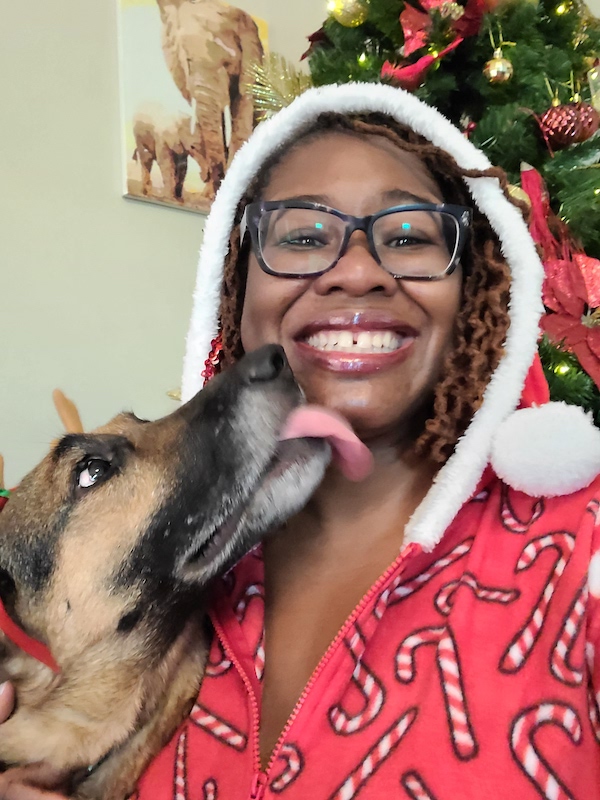
"I went to the Houston Humane Society website last April when I was looking to adopt, and the dog of the week was a German Shephard mix named…Felicia! Love at first sight."
Thank you for taking on the role of ABPMR volunteer, Dr. Skelton! We are looking forward to all you will contribute to physiatry in your work with the board. To all ABPMR volunteers who have dedicated so much of their time and effort to the field of PM&R: thank you!
